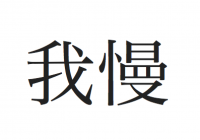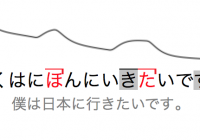The *other* uses of polite language in Japanese
I think it’s fair to say that polite language (敬語, keigo) is one of the most difficult things to master in the Japanese language. Polite language includes the basic desu/masu forms that students generally learn early on, but there are also more advanced forms of polite language with varying nuances (ex: 召し上がる、お目にかかる). For the purposes… Read More »








